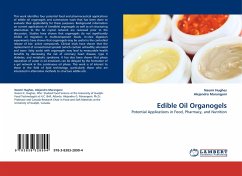
Effect of some processing on chemical constituents of edible mushroom
Versandkostenfrei!
Versandfertig in 6-10 Tagen
39,99 €
inkl. MwSt.

PAYBACK Punkte
20 °P sammeln!
For thousands of years, Eastern cultures have revered mushrooms health benefits. Mushrooms have long been celebrated as a source of powerful nutrients,. Often grouped with vegetables mushrooms provide many of the nutritional attributes of produce, as well as attributes more commonly found in meat, beans or grains. Mushrooms are low in calories, fat-free, cholesterol-free and very low in sodium, yet they provide important nutrients, including selenium, potassium, riboflavin, niacin, vitamin D and more. Nutrient Composition : The focus on the nutritional value of brightly colored fruits and vege...
For thousands of years, Eastern cultures have revered mushrooms health benefits. Mushrooms have long been celebrated as a source of powerful nutrients,. Often grouped with vegetables mushrooms provide many of the nutritional attributes of produce, as well as attributes more commonly found in meat, beans or grains. Mushrooms are low in calories, fat-free, cholesterol-free and very low in sodium, yet they provide important nutrients, including selenium, potassium, riboflavin, niacin, vitamin D and more. Nutrient Composition : The focus on the nutritional value of brightly colored fruits and vegetables has unintentionally left mushrooms in the dark. Mushrooms provide a number of nutrients: Mushrooms are a good source of B vitamins, including riboflavin, niacin, and pantothenic acid, which help to provide energy by breaking down proteins, fats and carbohydrates. B vitamins also play an important role in the nervous system. Pantothenic acid helps with the production of hormones and also plays an important role in the nervous system. Riboflavin helps maintain healthy red blood cells. Niacin promotes healthy skin and makes sure the digestive and nervous systems function prope












